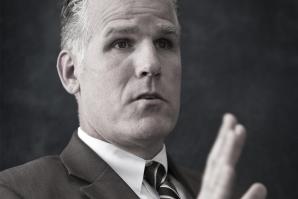I am no fan of Measure U, the voter-approved sales tax that went into effect in April. New taxes are rarely the answer to economic malaise. But Sacramento voters said yes to the half-percentage-point increase, and the first $5 million generated from it will hit city coffers in time for the new fiscal year beginning July 1.
Voters essentially agreed with city leaders that there was no other solution for a city budget decimated during the recession. At the same time, voters made it clear they wanted the funds to restore critical city services — not to bring down deficits. An independent auditor and a citizen oversight committee will help to ensure the city keeps its part of the bargain.
So far, city leaders are proposing to use the new funds as voters intended: by restoring personnel and services in fire, police, parks and recreation, and the library. For starters, the new budget calls for 80 positions to be restored in the fire department, and dozens more jobs in the shrunken parks department will also be filled. That increase will allow the city to open 11 swimming pools and five wading pools, extend community center hours and provide more maintenance at city parks.
The budget also includes a six-year plan — the life of the tax increase — to build these services.
So far, so good. This year’s budget will be the first since 2008 not to include layoffs, and city revenues are up by $2.7 million.
There is, however, one not-so-small problem. The city still faces a nearly $9 million deficit, thanks to ballooning pension obligations. Tough negotiations between the city and employee unions last year led to significant progress in bringing down these costs by asking employees to contribute to their pension funds. Now, 59 percent of city employees make such contributions.
The majority of those who do not are police officers and sergeants, whose union (the Sacramento Police Officers Association) has thus far refused to pay into its retirement plan. The city would like to hire 58 uniformed police officers with Measure U funds. Those officers, hired over the next 18 months, would beef up street patrols and help the department investigate violent felonies.
But city leaders have rightly drawn a line in the sand: No city dollars will be spent to fund those new positions until police join their fellow city employees in paying a fair share of pension costs. In addition, if forced to, the city could close the budget deficit by eliminating 40 currently vacant positions, including 29 police officers. None of the reductions would be needed if the police union and the few other small union holdouts agree to pony up.
We know that public employee pension plans are fast becoming unsustainable at the federal, state and local levels alike. Organizations like the League of California Cities have worked for several years on plans to help local governments deal with rising costs.
City and county leaders in our region, like others across the state, have agreed to common principles for pension reform, reinforcing their commitment to a defined benefit program while committing themselves to eliminating abuse and reducing retirement costs by sharing them with employees.
Sacramento city leaders are acting in the spirit of these agreements — and according to the wishes of those who voted for the Measure U funds — when they ask that all employees pay into retirement funds.
The police union is clearly on the wrong side of this argument and needs to stop holding the city hostage with unreasonable demands for fully paid retirement. City leaders should be applauded for their resolve; they should continue to hold their ground, uphold the intention of Measure U and protect the fiscal integrity of the city.
Recommended For You

Relationship Troubles
Are state workers the best pick for upgrading California’s massive IT systems?
In 1984, California’s Department of Technology didn’t exist. Information technology consultants were rare, and there were fewer contractors involved in state services. For the most part, the state developed government systems with in-house resources. From development and analysis to budgeting and implementation, it was a full-service operation.
That was then.

Realign. Redevelop.
Counties director Matt Cate thinks California is righting its course
No one can accuse Matt Cate of avoiding the hard jobs. During his four years at the helm of California’s state prisons, he guided the system through some of its toughest times, including historic budget cuts and the implementation of Gov. Jerry Brown’s controversial 2011 realignment plan, which shifted tens of thousands of offenders to local jails and parole supervision.


